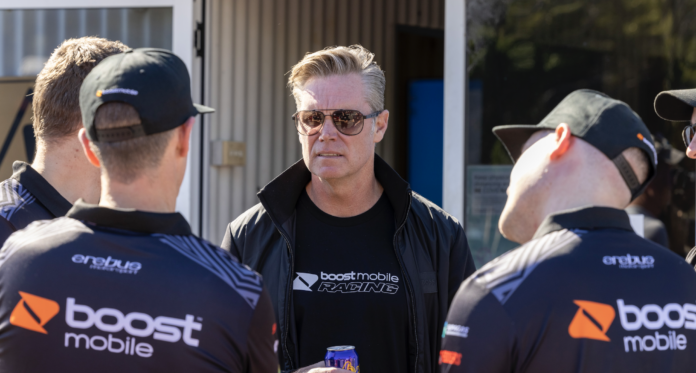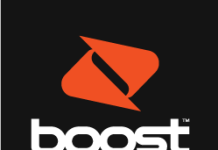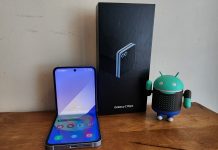The mobile carrier space is hyper-competitive, with the big three always looking for an edge over the competition. But what about the MNVO space where it’s just as competitive, but without a lot of the overheads. Often you can get a really good deal there, with coverage, data and speeds you need for your daily life. We’ve been offered a chance to chat to Boost Mobile founder, Peter Adderton on the back of their announced huge growth across the last four years.
This growth has been so significant that Boost now has over 700,000 customers and is eyeing one million as the next goal. While it’s within reach, it’s not something they’ll achieve without solid plans. During our time with him, we asked Peter about how he believes Boost can keep stepping up and meeting market needs, maintaining the — award-winning — customer service and satisfaction levels currently enjoyed.
The answer was resoundingly a focus on being about people first, ensuring the product meets the consumers’ needs and building the brand on reputation – Not marketing. This builds the authenticity of the brand and helps users connect with the brand, not just a corporate name. He was very clear about the fact that word of mouth is a far more effective marketing tool than any amount of money spent on advertising.
Visibility with the brand, not the face of the brand
If you follow Peter on social media you’ll notice a couple of things. The first is that he shoots straight from the hip, it’s a no B.S approach to anything and personally, I like that. The second is that he likes a good stir, whether that’s simply triggering haters, other names in his circles or competitors:
All those @danielricciardo fans concerned that due to the massive outage @Optus is having today he won't be able to get an uber to Track worry Not @BoostAus has sent a phone to his hotel room to ensure he races this weekend 🤣 your welcome Optus…. pic.twitter.com/3sks1JQ1tt
— Peter Adderton (@peter_adderton) April 5, 2022
In-person, in this case, a video call his personality shines through even stronger. He’s bursting with passion for the Boost brand, is extremely energetic, personable and makes conversation easy and natural. It’s easy to see how he can lead such a successful team and culture in business.
We got to talking about some of the fun stuff Boost gets involved with – Sports and athlete sponsorship. It’s really on-point that Boost is a key sponsor for Erebus Motorsport in the Supercars Australia championship — as well as a sponsor of the series itself — since that, similar to Boost vs the “Big 3” feels like a David vs Goliath battle with the little guys punching well above their weight.
During our talks, I asked Peter about the sporting arenas that Boost are involved in and the relationships that he has in those fields. With names like James Courtney, Will Brown, Brodie Kostecki, Richie Stanaway, Greg Murphy and Chad Reid in motorsport, surfing sponsorships and a lot more. It’s in those sporting arenas and the visibility that not just the brand, but Peter has he believes much of that trust in the Boost brand is built. He’s attending events regularly that Boost either directly sponsors, or that has sponsored athletes competing in it.
It’s on this foundation, as well as having the focus on people internally that has built such a strong and passionate culture within the team. One comment that Peter made during our time, demonstrating the passion he has for the brand and that I wish more management and executive teams worked towards is:
You shouldn’t have to force people to come to work, you should force them to leave and go home.
The talks of 5G
Given the switch on of 5G from Telstra for MVNO and the near-immediate adoption from many of the carriers, discussion of 5G was always going to happen. When the topic did shift, I was somewhat surprised to hear Peter immediately respond with:
I’m actively telling my team don’t promote it, don’t sell 5G. I don’t agree that 5G as a service offers any huge incentive to mobile users and doesn’t deserve the premium price tag!
Now, this is primarily because he believes it’s not a good value proposition right now, in fact, he, and Boost as a business are continuing to fight for access to 5G on lower plans. Right now, as is the case with Telstra plans, only the top tier of Boost’s plans has access.
To answer the basics about 5G under the Boost banner:
- It’s available now!
- Boost 5G coverage is the same as the full Telstra network
- It’s available to anyone who wants to pay the premium for the extra data and speed: $70 per month
He was, however, very positive about the prospect of Boost Australia utilising 5G services to provide fixed broadband access as an NBN alternative. While there is no timeline on that potential right now, he said it was on the cards but only if they (Boost) could do it right the first time. This isn’t the first time he’s said something to this effect publicly either:
Me in 2020 "I think we’ve got a long way to go before 5G actually has an impact and I think if it’s going to have an impact it’s probably going to be more of a fixed line replacement, than it is to improve your experience.”https://t.co/Zad6YQNxFp
— Peter Adderton (@peter_adderton) February 14, 2022
The future of connectivity
Given some of his views on business and technology, as a bit of a fun discussion to close out our time: I asked Peter where he sees the mobile carrier industry and connectivity being in five to ten years.
One of the points he made is that the mobile networks, aside from a few short periods each day, have a lot of spare capacity. This leaves their infrastructure underutilised and that, in line with the network sharing arrangements between the network providers, could lead us to a place where consumers buy access to the “best experience possible” at any given time.
This is a release from the carrier lock-in that we are all part of in the current market, potentially even having the network provider low-bidding for consumers’ business and carry their calls as the calls are made. Of course, a lot of work and agreements would need to be made in the meantime for this to happen. But given the speed that the mobile landscape is evolving, this synchronisation of the best mobile experience possible isn’t out of the realms of possibility.
It was an absolute pleasure chatting with Peter, and I’d like to again thank him for his time and honesty with his answers. We’re looking forward to seeing how accurate these future predictions are about the mobile landscape and will watch the growth of Boost mobile with keen interest.










I’m a Boost customer and have to agree with Peter Adderton, we have 5G on our work mobile phone and I don’t notice any difference when surfing, watching Youtube videos etc. So unless I’m planning on downloading a 1Gb+ file the difference is 20 seconds on 5G to 4 minutes on 4G. As I rarely download a 1GB file on a SIM I can’t see the reason why I would benefit from 5G, sure I’d like to have it but I don’t need it, at all!!
Phil, saying ‘No’ to the 5G premium price to access, is what I’ll be doing, when I replace my old Nokia 6.1, with a Moto G51 5G, during this week, and move the number from Optus, to Telstra.
Optus is one, small step, away from being completely unusable at my new place. So staying with Optus is simply not viable.
My use of a smartphone is too light per month, to justify the premium Telstra are asking for 5G. So I’ll have a 5G capable device, that will only ever be using 4G, solely due to the cost for 5G.